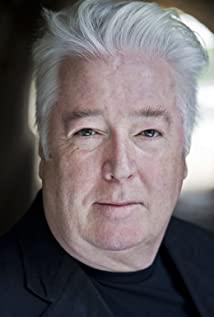But I think 3 is the most profound in the sense of the field the film is trying to explore, and it reflects a lot to think about.
The beginning of the film briefly shows us that during World War II, several German soldiers ate the protagonist's sister, Misha, because of starvation and lack of food, in order to survive, and the protagonist also survived (albeit in a young and dimly conscious situation). The next revenge, the movie spends most of the time telling how Hannibal brutally killed the soldiers one by one, and in the way of eating part of their flesh, a tooth for a tooth and an eye for an eye Returning an eye, but undoubtedly this long description of the process of killing 4 people is somewhat redundant and makes people feel aesthetic fatigue.
War is cruel. During the war, many people starved to death on the border between the Soviet Union and Germany because of the snow and ice. Of course, there must be a lot of cannibalism. This in itself is a dark story that can be turned into a movie. The movie Boy Pi is a dark story under a beautiful cover. In Silence of the Lambs 3, the victim who survived - Hannibal's hatred in his heart is resolved in this film. In addition, it is worth mentioning that Gong Li's role as a Japanese woman is promoted by contrast. Her family members were all killed in the nuclear bomb explosion. There is no doubt that this woman should also be full of hatred like Hannibal and countless war victims, and have nightmares in the middle of the night, dreaming of her family members who died tragically, such a person, What kind of distortions will there be psychologically? Where should the various mutual hatreds brought about by war find their end?
Civilians are innocent, be it Japanese women or Hannibal, but who is to blame for these hatreds? Where will these hatreds come to an end? Is it the catharsis of the violence that is inflicted on him, or the generation that participated in the war will return to dust and dust?
How to relieve the pain caused by hatred? Get short-term comfort and pleasure in cruelly causing the enemy to suffer! There seems to be a possible solution mentioned in the film, in the name of love. However, when Hannibal told Gong Li that I love you at the end of the film, Gong Li's sentence "What is left in you to love?" made me have to think about the relationship between love and hate.
View more about Hannibal Rising reviews











